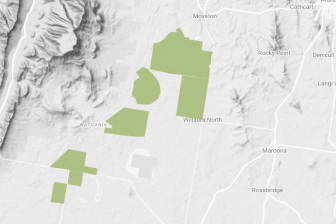CropLife Australia says the delays are leaving Australian farmers exposed to millions of dollars annually in preventable crop losses.
Chief executive Matthew Cossey said it was the sixth successive quarter where the authority’s performance for assessing major pesticides had dropped.
“It’s now 78 percent of what is a statutory timeframe requirement, so this simply means in real terms, farmers are being denied access to crucial products they need to deal with all sorts of challenges they’re facing, dealing with major diseases and pests,” he said.
“Fall armyworm, red legged earth mite, powdery mildew and fusarium crown rot are costing the farming sector dearly.
“Fusarium alone costs the farming sector more than $400 million a year. That’s why it’s so important we see this regulator improve its performance in terms of timing of assessments.”
Mr Cossey said politics, sensationalised claims that had resulted in no basis and a change in the chief executive of the authority had contributed to the delay.
“There’s no doubt that in the APVMA, Australia actually has a world renowned and highly respected regulator for agricultural chemistry,” he said.
“They have a very good reputation around the world for a very good reason. They’re seen as competent in a technical and scientific regulatory area, but what we are seeing, is their timing performance slip. And that has real consequences for Australia’s farming competitiveness.”
Mr Cossey said Australia’s farmers were facing some of their greatest challenges ever.
“A challenging climate that escalates disease and pests that need controlling, challenging international markets and a greater demand to be even more environmentally sustainable – the products the APVMA regulate go to the core of assisting farmers meet those challenges,” he said.
Mr Cossey said the authority was well-resourced and sat on significant cash reserves.
“It is a false economy to assert that timely assessment of new crop protection products needs to be sacrificed in order for the APVMA to meet the full breadth of its regulatory obligations, including chemical review and compliance,” he said.
“CropLife Australia and our members remain committed to working with the regulator and the government to implement efficiency measures that improve the performance and maintain the integrity and community confidence in the system and deliver better outcomes for Australian farmers, consumers, and the environment.”
The entire April 24, 2024 edition of The Weekly Advertiser is available online. READ IT HERE!
The entire April, 24, 2024 edition of AgLife is available online. READ IT HERE!






